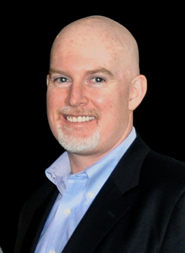Market making ain’t what it used to be.
Back in the day, spreads were fat, market "events" didn’t matter and everybody knew everybody. Now spreads are razor thin, volatility has emerged as an asset class and the number of industry players has mushroomed.
Dennis Davitt, the head of equity derivatives at First New York Securities, has spent 20 years as a listed options trader and has witnessed the changes firsthand. He began his career as a market maker at Wolverine Trading, where he was one of four original employees. Now there are over 200.

He recently addressed a crowd of traders at the annual conference of the New York chapter of the Security Traders Association. "It was a small country club," Davitt said of the options industry when he was getting his start. "There were only four exchanges and a handful of market makers. There were the O’Connors, the Cooper-Neffs, and the Susquehannas."
Back then traders didn’t pay too much attention to earnings or events that might roil the stock market, Davitt said. "You were an options guy. You had your valuation sheets and that was it."
Spreads, especially compared to those in today’s penny increment world, were to die for. "The bid-ask was so wide that you could buy one call, trade another option against it and turn it into a butterfly or call spread, and money would just drip out if it all day," Davitt reminisced.
That didn’t last long. The market soon got very efficient. Davitt traces it to the advent of low-cost computing power. "More and more people could leave the Susquehannas and the O’Connors and start their own trading groups," he said. "So you saw more and more bid-asks. The cost of doing business dropped."
At that point, with spreads narrowing, options market makers had to take on some real risk. "You had to really position yourself," he said. "Is volatility on this event too high? Then you made your decision."
In 2001, Davitt moved to Credit Suisse as head of derivatives trading, where he was a "block market maker in volatility." Electronic trading came in and the job morphed into one of a "micro" market maker: size went down dramatically but the number of stocks covered grew much larger. "That’s where we are now," Davitt said.
But even micro market making is going through a change, the trader said. Spreads are tight. Without huge spikes in volatility that cause them to widen, it’s very difficult to make money. Plus, the barriers to entry are still dropping along with the price of computing power. "Everything is on the cloud," Davitt said. "All these resources are out there for less and less money. It gets cheaper and cheaper to become one of those micro market makers."
At First New York, a hedge fund, Davitt is less of a market maker and more of a "market taker," he said. The firm does fundamental research and then leverages Davitt’s experience as a market maker to put on trades. "So if there’s an opportunity in the options market, that’s where we go for leverage," the veteran said.



